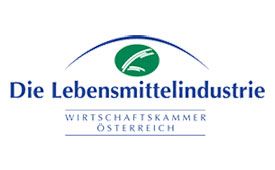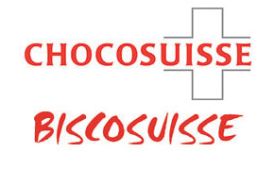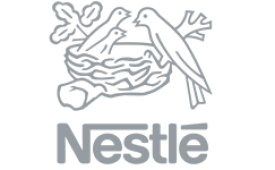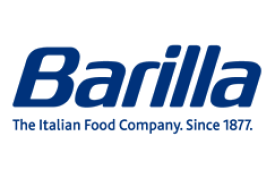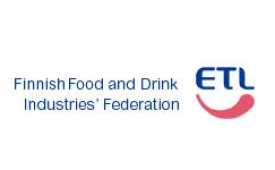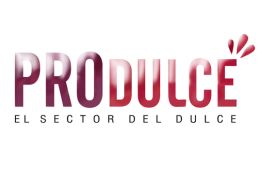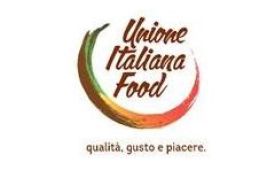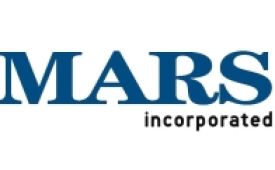June 16,2020 - Joint EU-UK food and drink industry letter on rules of origin to lead EU and UK trade negotiators
We are writing on behalf of a group of food and drink trade associations from across Europe that have a strong shared interest in the successful outcome of future trade talks between the EU and the UK. Our industries produce, process and manufacture a diverse range of products that help ensure consumers and shoppers across Europe benefit from the highest quality and widest choice of food and drink anywhere in the world.
The producers and manufacturers we represent would benefit from continued close alignment where that is possible, however we recognise circumstances will inevitably change because of the UK’s decision to leave the EU.
An area of real concern that is shared by food and drink businesses on both sides is around the damaging impacts rules of origin could have for our highly integrated supply chains.
Rules of origin are a critical component in trade agreements that are frequently overlooked in the wider discussion of international trade because of the focus on reducing tariffs. They are the terms and conditions businesses must meet to access preferential tariffs secured in a trade agreement. If these rules are not set at appropriate levels or designed with sufficient flexibility to reflect the varied
needs of food and drink supply chains, our industry will be negatively impacted.
Across Europe, food and drink are at the heart of daily life, essential to our security and a critical part of the economies of EU Member States and the UK. European food and drink businesses contribute more than any other manufacturing sector to GDP. Across the EU and the UK, food and drink manufacturers directly employ more than 4.7 million people, with millions more across the wider ‘farm to fork’ food and drink supply chain. We ensure that every day consumers and shoppers enjoy
a wide range of high quality food and drink available at every price point. Our contribution to public wellbeing has never been clearer.
At the end of the transition period, the terms on which food and drink are traded will change. We hope that negotiators will be able to agree tariff free trade in food and drink, but these goods will nevertheless go from being traded seamlessly on the EU’s Single Market to becoming products which are exported and imported between the EU and the UK, with an inevitable increase in friction. We
want to maintain our high food standards after 1 January 2021 and with the right trade deal, our members can maintain these essential cross-border, interdependent European supply chains. It is strongly in all our interests – businesses, governments and consumers – to promote continued trade and to minimise avoidable disruption wherever possible. This will be essential to support the post- COVID-19 economic recovery.
International trade is a key driver of growth and innovation at home and abroad. European food and drink industries are also global success stories. We are committed customers of domestic producers and this will not change. However, in adding value to domestically produced raw materials, we also depend on having access to high quality imported ingredients. For example, to ensure consumers can buy fresh bread and quality pasta all year round, European producers – both in the EU and the UK – will depend on a seasonal basis on imports of high protein and durum wheat from Canada, the United States and other countries.
We welcome the commitment both sides have given towards negotiating a trade agreement that delivers tariff and quota free trade. However, the devil of such an agreement will be in the detail. A tariff free preferential trade agreement will be meaningless if businesses are unable to access these preferential tariff rates. In the case of food and drink, this will only be possible if both sides agree to put in place bespoke rules of origin.
Our industries face a unique challenge in terms of seasonality and the impacts of climatic conditions which mean from one year or even one season to the next, sourcing arrangements will frequently change. For producers of value-added food and drink products in both the EU and the UK, existing models of rules of origin fail to address these challenges. A sub-optimal outcome, based on these models will inhibit rather than promote future trade between the EU and UK, to the detriment of our businesses, employees and crucially consumers and shoppers. Manufacturers on both sides would face the unwelcome prospect of either a costly restructuring of supply chains or a de facto barrier that blocks valuable trade flows between the EU and UK.
This doesn’t have to be the case. Our industries have taken the initiative and identified a series of constructive solutions in developing a model based on examples of best practice to minimise damaging impacts of these stringent rules on EU and UK food and drink producers. These solutions are needed to ensure highly integrated European supply chains can continue to operate. They will allow EU producers to continue adding value to required third country raw materials that are exported as finished goods to the UK. They will ensure UK producers can continue to utilise a wide range of EU originating raw materials in products that are consumed in the UK or exported to the EU or to other preferential trade partners. They will also help protect the interests of producers in least developed countries (LDCs) that otherwise could be disadvantaged.
The five key elements that we have set out in this model are:
- Full bilateral and diagonal cumulation between the EU, the UK and shared preferential trade partners to protect the close and integrated supply chains between EU and UK food and drink producers which have built over the last decades;
- Options allowing origin determination by value should be allowed to avoid harming continued trade in manufactured products, to aid application by SME producers and to ensure an approach that is consistent with provisions in CETA;
- Any transformation that brings about a change in tariff classification should be considered sufficient to confirm origin to help provide greater simplicity and clarity for businesses seeking to access preferential tariffs;
- A joint EU-UK exemption for all originating imports from least developed countries (LDCs). Developing countries should not be inadvertently disadvantaged by the UK’s decision to leave the EU; and
- A 10 per cent tolerance margin by value for non-originating inputs in any exported good without impacting on its originating status.
Taking these recommendations one step further, we also share a formal legal protocol produced by UK industry that provides examples of how our five recommendations can be used in a trade agreement. This text provides solutions that can help EU and UK policymakers design a genuinely best-in-class agreement that avoids damaging supply chains that are central to our economies and our food security. We are confident that this will deliver positive outcomes for food and drink and more widely for manufacturing industries across the EU and UK.
Our industries remain ready and willing to help deliver an ambitious trade agreement between the EU and the UK that enables businesses to thrive and contribute towards the economic recovery. We would welcome the opportunity to further discuss these proposals with you and stand ready to work in support of delivering a bespoke solution that delivers a win-win outcome for the EU and the UK.
We are copying this letter to:
EU:
Phil Hogan, European Commissioner for Trade
Sabine Weyand, Director-General for Trade
Janusz Wojciechowski, European Commissioner for Agriculture
Paolo Gentiloni, European Commissioner for Economy
Thierry Breton, European Commissioner for Internal Market
David McAllister MEP, UK Coordination Group (UKCG), Chair of the Committee on Foreign Affairs
Members of the European Parliament’s UK Coordination Group
Andreja Metelko-Zgombić, EU General Affairs Council, State Secretary for European Affairs of Croatia
Maroš ŠefÄoviÄ, European Commission Vice President for Interinstitutional Relations and Foresight
UK:
David Frost CMG, UK Chief Negotiator
Rt Hon Michael Gove MP, Chancellor of the Duchy of Lancaster and Minister for the Cabinet Office
Rt Hon George Eustice MP, Secretary of State for Environment, Food and Rural Affairs
Rt Hon Elizabeth Truss MP, Secretary of State for International Trade
Rt Hon Alok Sharma MP, Secretary of State for Business, Energy and Industrial Strategy
Rt Hon Hilary Benn MP, Chair, Committee on the Future Relationship with the EU
Neil Parish MP, Chair, Environment, Food and Rural Affairs Committee
Angus MacNeil MP, Chair, International Trade Committee
Darren Jones MP, Chair, Business, Energy and Industrial Strategy Committee
The Earl of Kinnoull, Chair, European Union Committee
The Baroness Verma, Chair, EU Goods Sub-Committee
Co-signed by the following EU and UK organisations:
Association of Bakery Ingredient Manufacturers (ABIM)
Association of Chocolate, Biscuit and Confectionery Industries of Europe (CAOBISCO)
Association of Independent Meat Suppliers (AIMS)
Association of the German Confectionery Industry (BDSI)
Breakfast Cereals UK (BCUK)
British Coffee Association (BCA)
British Food Importers and Distributors Association (BFIDA)
British Meat Processors Association (BMPA)
British Oats and Barley Millers Association (BOBMA)
British Poultry Council (BPC)
British Soft Drinks Association (BSDA)
Cereal Ingredient Manufacturers' Association (CIMA)
Chilled Food Association (CFA)
Council for Responsible Nutrition UK (CRN UK)
Dairy UK
Dutch Biscuit Chocolate and Confectionery Association (VBZ)
European Breakfast Cereal Association (CEEREAL)
European Flour Millers (EFM)
European Fruit Juices Association (AIJN)
European Potato Processors’ Associations (EUPPA)
European Snacks Association (ESA)
European Specialist Sports Nutrition Alliance (ESSNA)
European Spice Association (ESA)
European Sugar Users (CIUS)
The Federation of the Belgian Food Industry (FEVIA)
Federation of Bakers (FOB)
Federation of European Manufacturers and Suppliers of Ingredients to the Bakery, Confectionery and
Patisseries Industries (FEDIMA)
Federation of Wholesale Distributors (FWD)
Food Additives & Ingredients Association (FAIA)
Food and Drink Exporters Association (FDEA)
Food and Drink Federation (FDF)
Food and Drink Federation Cymru (FDF Cymru)
Food and Drink Federation Scotland (FDF Scotland)
Food and Drink Wales Industry Board
Foodservice Packaging Association (FPA)
German Association of the Fruit, Vegetable and Potato Processing Industry (BOGK)
German Sugar Users (IZZ)
Gluten Free Industry Association (GFIA)
Health Food Manufacturers Association (HFMA)
International Association of Plant Bakers (AIBI)
National Association of British and Irish Millers (NABIM)
Packaging Federation (PF)
Pet Food Manufacturers’ Association (PFMA)
Polish Chocolate, Biscuit and Confectionery Association (POLBISCO)
Potato Processors Association (PPA)
Proprietary Association of Great Britain (PAGB)
Provision Trade Federation (PTF)
Rice Association (RA)
Royal Belgian Association of the Chocolate, Praline, Biscuit and Confectionery Industries
(CHOPRABISCO)
Seasoning and Spice Association (SSA)
Soft Drinks Europe (UNESDA)
Tea and Herbal Infusions Europe (THIE)
Total Diet and Meal Replacements Europe (TDMR Europe)
UK Flavour Association (UKFA)
UK Industrial Sugar Users Group (UKISUG)
United Kingdom Tea and Infusions Association (UKTIA)
Vinegar Brewers Federation (VBF)
